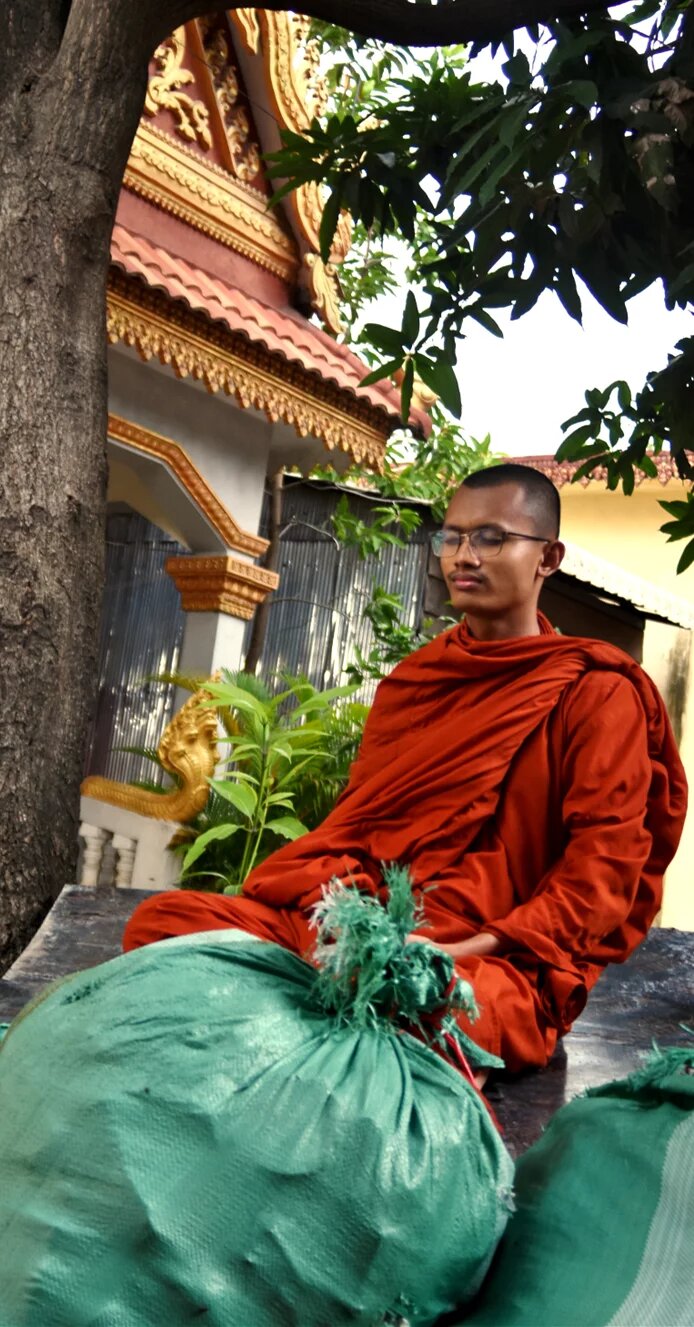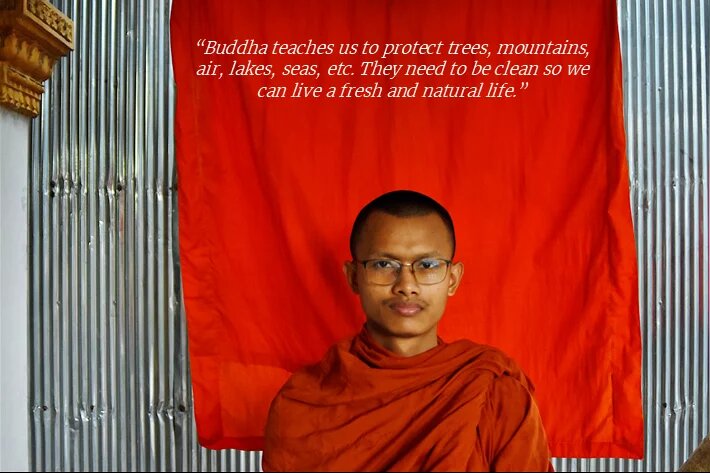
Cambodia faces a slew of environmental issues like rampant deforestation in its dense evergreen forests, air and water pollution affecting critical lifelines like the Tonle Sap and Mekong River and dying ecosystems of flora and fauna.

A more urban environmental concern that is directly linked to human consumption is plastic waste. A Cambodian’s daily life is synonymous with plastic use — be it buying beef and vegetables at the local market, ordering an iced coffee with condensed milk at a street-side vendor, or the sprouting of urban food delivery services that promise convenience but generate large amounts of plastic waste.
The United Nations Development Program estimates that around 10 million plastic bags are used daily in Phnom Penh alone. This coupled with an almost non-existent formal plastic waste collection, separation and management system, means that plastic waste finds its way into Cambodia’s water bodies, agricultural lands and natural landscapes.
Tackling Cambodia’s omniscient plastic waste is what drew Chea Lincheat, a young Buddhist monk from Banteay Meanchey province. After joining the monkhood in 2017, Lincheat was drawn to environmental activism a few years later, realizing that it is not easy for young people to enter activism given it is politically charged.
“Most families don't allow their child to do social work because they feel it might go against the government and a lot of environmental activists have been arrested in the past,” Lincheat says.
Environmental activism in Cambodia is led by young people, who say they have the most to lose in the current destruction of nature. Groups like Mother Nature, Not1More and Cambodian Youth Network are youth-led and fearless in their demands that Cambodia’s forest must not be razed, its natural resources should not be exploited for the benefit of the political elite or that activists who speak out must be given a voice and not muzzled.
Young activists like Lincheat are now helping other young people to advocate for causes that have driven them to action. Having a religious grounding, Lincheat says Cambodians only have to look to Buddhist principles to push for the protection of the environment. “Buddha teaches us to protect trees, mountains, air, lakes, seas, etc. They need to be clean so we can live a fresh and natural life,” says Lincheat.
The young monk volunteers with the Youth Resource Development Program (YRDP), a non-government organization where young people can learn about issues affecting them and advocate for these causes with their peers to bring about change. Through his association with YRDP, Lincheat says he has expanded his understanding of plastic use and waste, but also now better understands extractive industries, recycling and deforestation.
As a young person who is eager to advocate for issues, Lincheat is best placed to be a mentor to other budding activists and youth, ensuring that Cambodia’s strong tradition of unrelenting activism endures.
This article is an excerpt from "Profiles of Courage." Click here for the full reading.